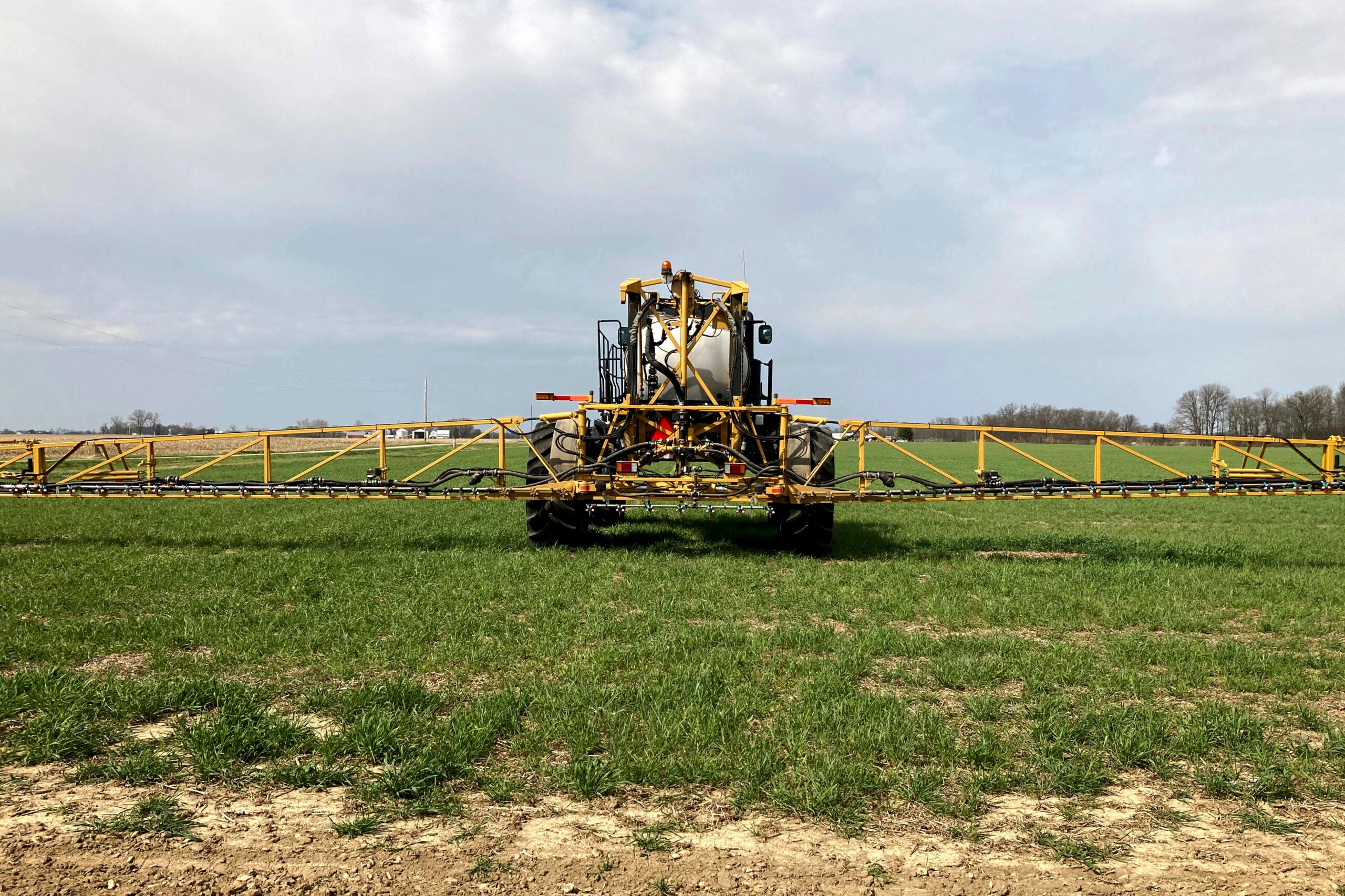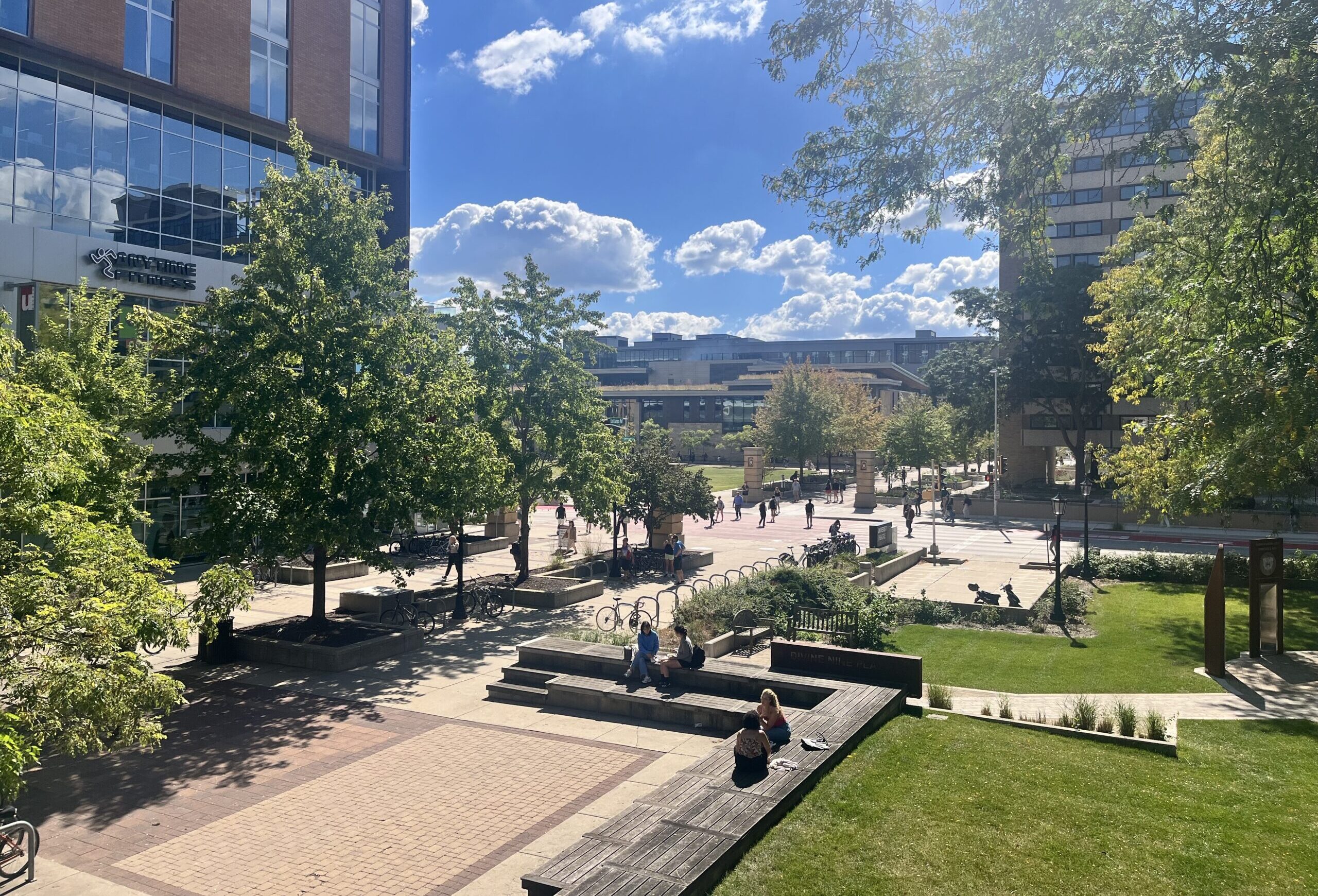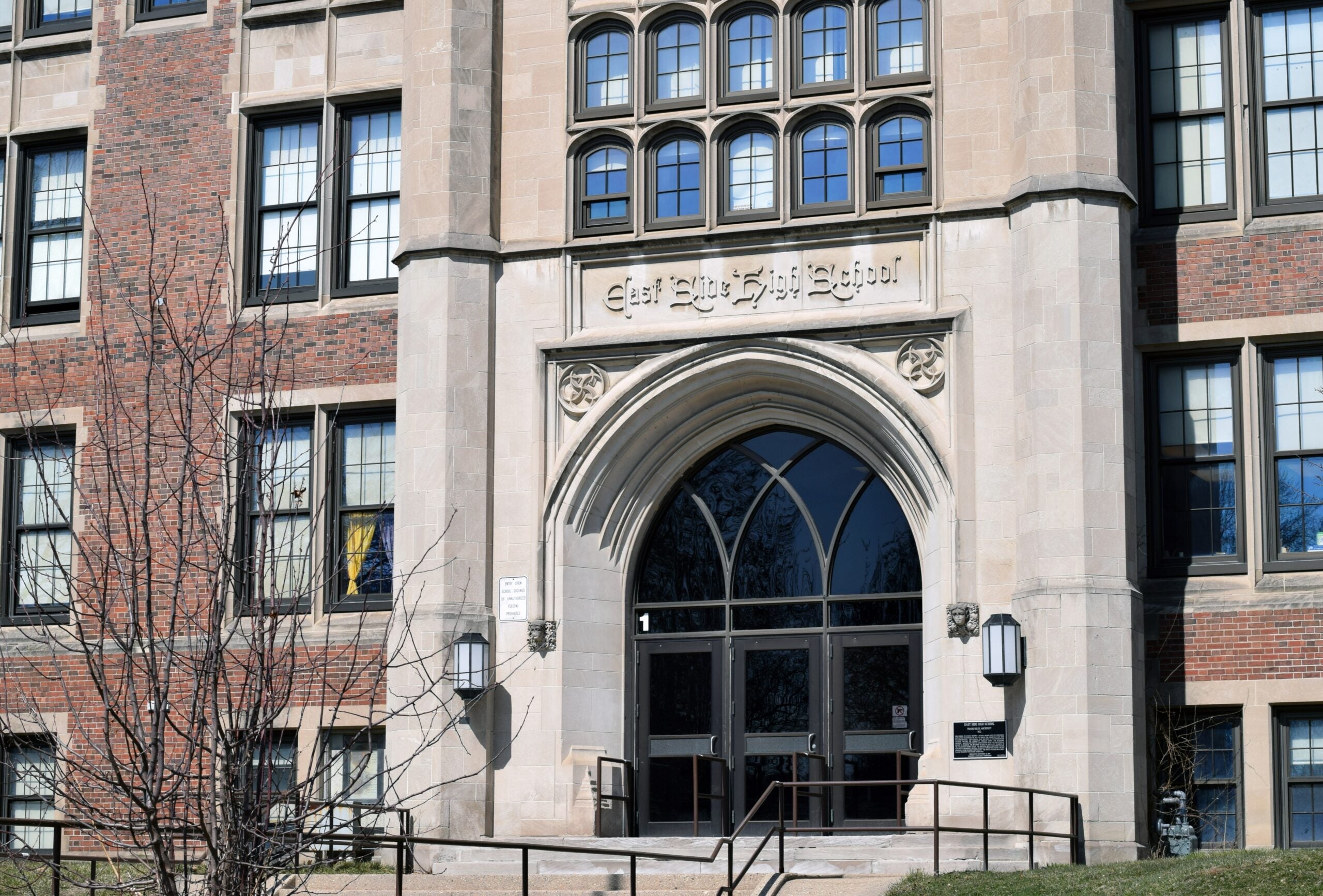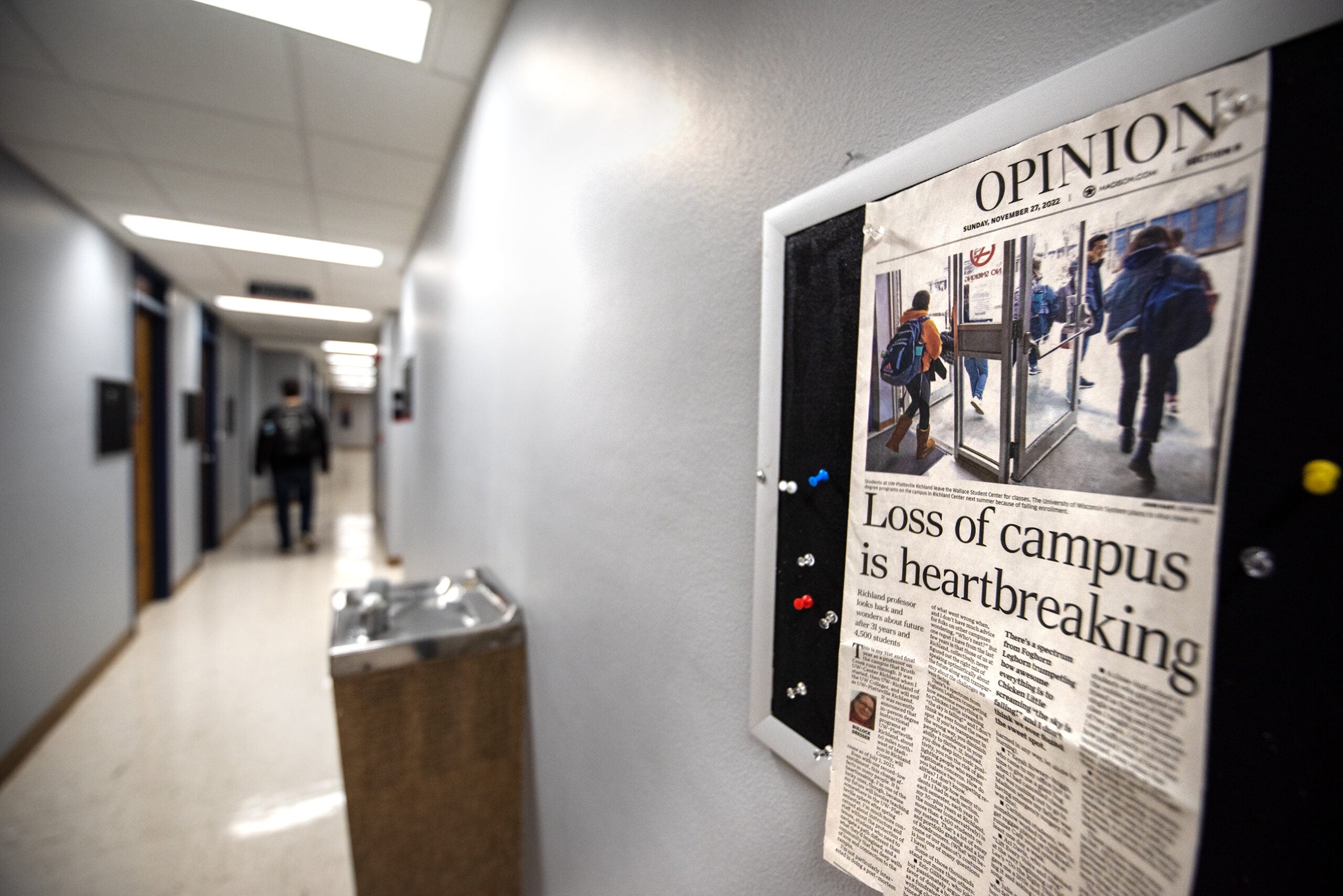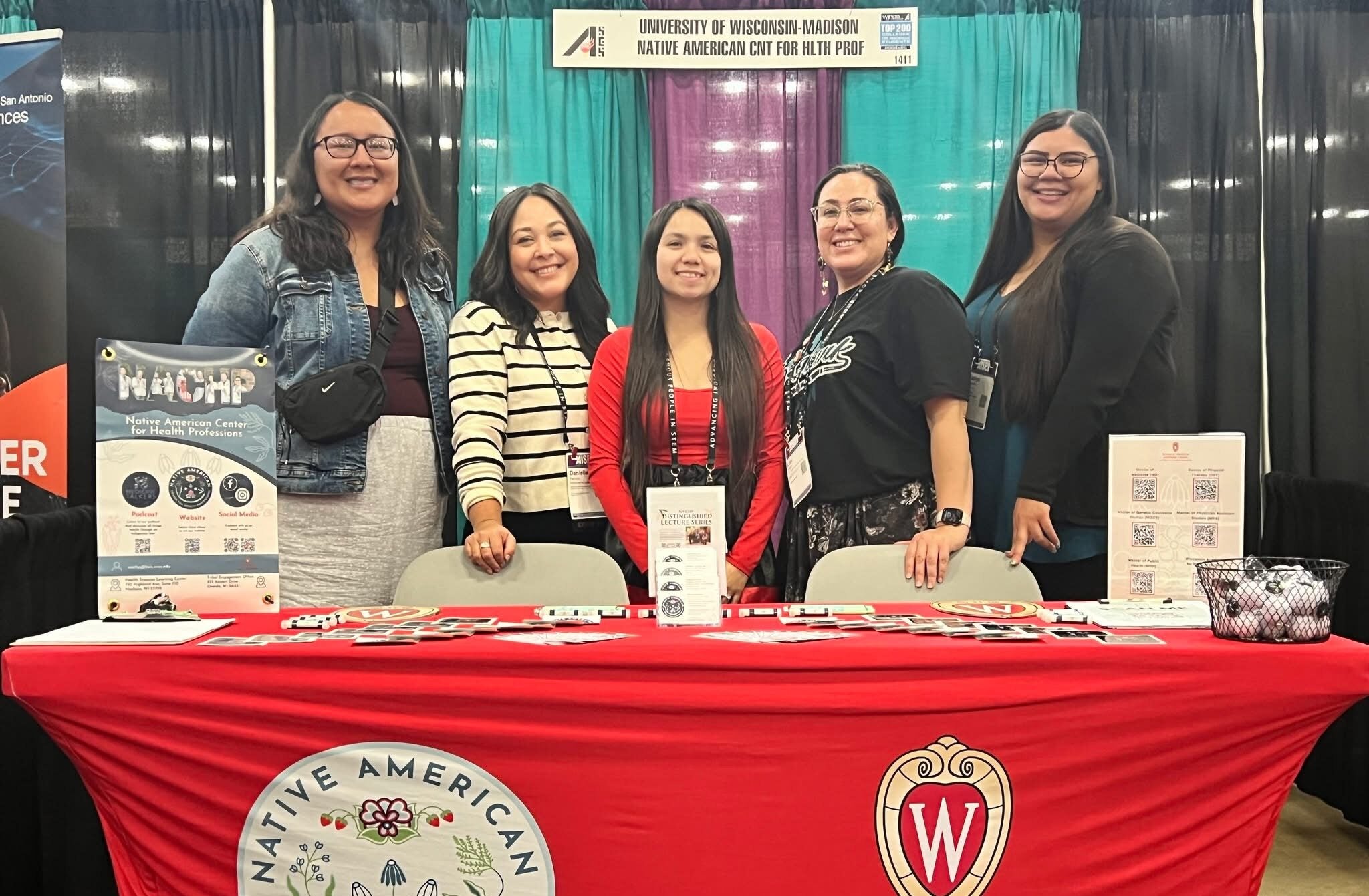Cheri Klussendorf graduated from the University of Wisconsin-Madison’s Farm and Industry Short Course in 2002.
The 16-week on-campus certificate program is where she met her husband, Ryan, and where she decided to take a chance on dairy farming.
“I came from a dairy farm background but had no intentions of wanting to farm,” Klussendorf said. “Ryan convinced me to take this class (for beginning dairy farmers). After taking it and listening to these farmers, I was convinced that it was a way of life that I wanted to have with him.”
Stay informed on the latest news
Sign up for WPR’s email newsletter.
The Klussendorfs own and operate Broadlands Grass Farm in Medford and have a son, Kale, graduating from high school in May. Klussendorf said Kale went to a preview day for the Farm and Industry Short Course in February and quickly decided he wanted to enroll.
But UW-Madison announced in March that the course would be changing from an on-campus residential program to a “more flexible, non-credit format” that would likely include online learning.
Klussendorf said without the guarantee of going to Madison to learn from agriculture professors on campus, Kale is no longer interested in enrolling.
“You have to remember that these kids that are graduating this year are the kids that have been in the four walls of a high school the least from any graduating class,” she said. “They missed a year, a couple of months during prime COVID and then they missed almost a full year with the constant need to be quarantined. We don’t have great internet where we live, and (online learning) was something (Kale) didn’t want anything to do with.”
The Klussendorfs are not the only ones upset about the changes being made to the program. Concerns from alumni of the program and others in the agriculture industry dominated a public listening session last week held by UW-Madison and farmer groups.
But Jennifer Blazek, director of the Farm and Industry Short Course, said the university is overhauling the program in order to save it.
The Farm and Industry Short Course dates back to 1886, when university leaders created a 12-week course for young men looking for practical instruction in farming. The program’s format has changed throughout its history, but it’s largely focused on providing a residential experience for students from rural communities to learn directly from UW-Madison professors.
In the 1970s and 80s, annual enrollment was around 200 students. But in the last decade, participation has been on a steady decline, with average annual enrollment at or under 100 students. Based on this trend, Blazek said the program was only projected to have about 20 students this fall.
“It’s a revenue-generating program. It has to support itself. And with fewer students, it makes it really hard to do that,” she said.
Blazek said university leaders implemented a strategic planning initiative in 2018 to talk about ways to improve the program, but the project was disrupted by the COVID-19 pandemic in 2020. She said recruiting and marketing efforts in the last four years have done little to halt the enrollment decline which is why university leaders believe a bigger change is needed.
The Farm and Industry Short Course will return to the program’s previous non-credit model after becoming a for-credit program in 2016, and it will now be housed under UW-Madison’s Division of Extension. Classes will be offered online, in person and using a mix of the two formats throughout the year instead of only being offered November through March. Blazek hopes the changes will mean students who previously were unable to leave their jobs on the family farm to come to Madison will now be able to participate.
“Ultimately, the goal was to make a program that was a lot more flexible and better match student’s needs where they’re at,” she said.
She said the details of the program haven’t been finalized, and university leaders hope recent listening sessions will help them determine what kinds of classes would best serve the next generation of farmers and employees of agribusinesses. Blazek said they hope to announce what classes this fall will look like by mid-May.
But some in the agriculture industry are skeptical about the process and how effective the program will be moving forward.
Jeff Lyon is head of FarmFirst Dairy Cooperative in Madison and previously worked for the Wisconsin Farm Bureau. He said he was asked to speak to Short Course students throughout his time at the Farm Bureau and saw graduates of the program go on to be leaders in their local and state Farm Bureau chapters.
“When you hear about these changes and the history with the program, you can see that there might be a hole there if we can’t figure out a way to bolster the number of students in the program,” Lyon said.
Lyon said action should have been taken sooner by the university to turn around declining enrollment. And he said UW-Madison needs to figure out how they’re going to make the new version of Short Course stand out from farming programs already available at the state’s technical colleges.
To Klussendorf, the on-campus experience at UW-Madison was the program’s defining characteristic. She acknowledged the program needs to change to keep up with current demand, but she worries about the lack of details around what those changes will be.
“I’m just very disappointed in the way that they brought it about without having a plan,” Klussendorf said. “I would never stop milking cows without having a plan on how I was going to have an income after that. And that’s basically what they did.”
Klussendorf said the lack of details could mean the university won’t have many students excited to sign up when they do figure out the next phase of the program. Her son Kale has already decided to take an apprenticeship with a local electrical company this summer instead of attending Short Course next fall.
Under the previous model, students applied directly to Short Course, not UW-Madison. Blazek said students will now register for classes without having to fill out an application to the program.
Wisconsin Public Radio, © Copyright 2025, Board of Regents of the University of Wisconsin System and Wisconsin Educational Communications Board.
